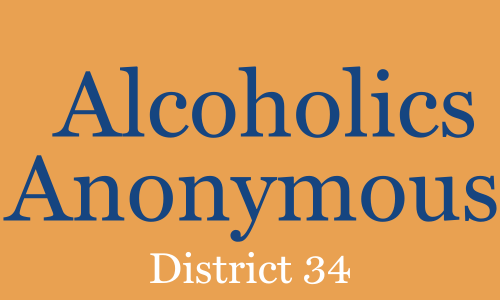
Questions about Alcoholics Anonymous!
-
Anonymity is the spiritual foundation of A.A. It disciplines the Fellowship to govern itself by principles rather than personalities. We are a society of peers. We strive to make known our program of recovery, not individuals who participate in the program. Anonymity in the public media is assurance to all A.A.s, especially to newcomers, that their A.A. membership will not be disclosed.
-
Anyone may attend open meetings of A.A. These usually consist of talks by a leader and two or three speakers who share experience as it relates to their alcoholism and their recovery in A.A. Some meetings are held for the specific purpose of informing the nonalcoholic public about A.A. Doctors, members of the clergy, and public officials are invited. Closed meetings are for alcoholics only.
-
A.A. is a program of total abstinence. Members simply stay away from one drink, one day at a time. Sobriety is maintained through sharing experience, strength and hope at group meetings and through the suggested Twelve Steps for recovery from alcoholism.
-
Over the years, Alcoholics Anonymous has affirmed and strengthened a tradition of being fully self-supporting and of neither seeking nor accepting contributions from nonmembers. Within the Fellowship, the amount that may be contributed by any individual member is limited to $7500 a year.
-
It is estimated that there are more than 120,000 groups and approximately 2,000,000 members in 150 countries.
-
The Fellowship has adopted a policy of cooperation but not affiliation with other organizations concerned with the problem of alcoholism. We have no opinion on issues outside A.A. and neither endorse nor oppose any causes.
-
There are approximately 35 meetings held in the Quinte East Area. For a list of meetings click here. To speak to a member of A.A. in Quinte East call our number 1-877-961-2134. This phone is always answered and someone will take your number and have an experienced A.A. member call you back.
-
1.Recruit members or furnish initial motivation for alcoholics to recover.
2. Keep membership records or case histories
3. Follow up or try to control its members.
4. Make medical or psychological diagnoses or prognoses.
5. Provide hospitalization, drugs, or medical or psychiatric treatment.
6. Provide housing, food, clothing, jobs, money or other such services.
7 Provide domestic or vocational counseling.
8. Engage in or sponsor research.
9. Affiliate with social agencies (though many members and service offices do cooperate with them).
10 Offer religious services.
11. Engage in any controversy about alcohol or other matters.
12. Accept money for its services or contributions from non-A.A. sources.
13. Provide letters of reference to parole boards, attorneys, court officials, schools, businesses, social agencies, or any other organization or institution.
Reprinted from The A.A. Group …Where It All Begins, p. 39, with permission of A.A.Item description
